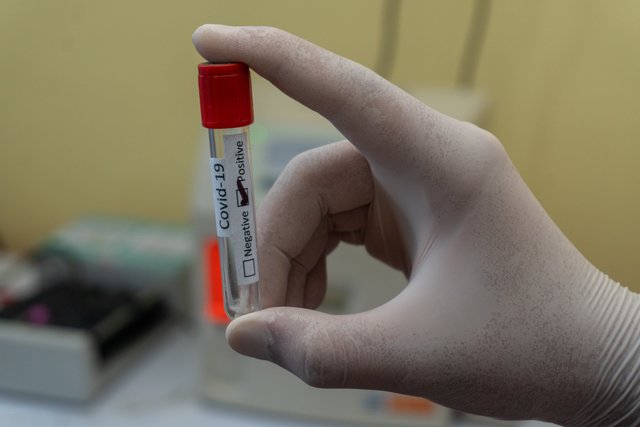A Guide To COVID-19 Testing For Small Businesses

Businesses find themselves in a unique situation, trying to keep their doors open while ensuring the safety of employees and customers.
Beyond mask wearing, physical distancing, and regular cleaning and disinfecting, many want to regularly test their employees. But finding and digesting the available information on how to do this right can be overwhelming, especially as a small business owner doing it alone.
Labcorp wants to help by sharing the latest information from top health agencies such as the U.S. Occupational Safety and Health Administration (OSHA) and the U.S. Centers for Disease Control and Prevention (CDC) on COVID-19 workplace testing in one place. We’re offering guidance in these areas:
Understanding COVID-19 and Testing Options
Creating a Workplace Testing Program
Communicating to Employees About Testing Options
Communicating Your Testing Plan to Customers
Understanding COVID-19 and Testing Options
As a business owner, there are many questions you need answered before you can build your testing program, which starts with getting trusted information to make good decisions.
How does COVID-19 spread?
OSHA gives the below information in their Guidance on Mitigating and Preventing the Spread of COVID-19 in the Workplace.
COVID-19 is a highly infectious disease that is spread most commonly through respiratory droplets and particles produced when an infected person exhales, talks, vocalizes, sneezes, or coughs. COVID-19 is highly transmissible and can be spread by people who have no symptoms. Particles containing the virus can travel more than 6 feet, especially indoors, and can be spread by individuals who do not know they are infected.
What are the different testing options?
The chart below compares the three main types of COVID-19 tests. Each can tell you different things about your COVID-19 status.
PCR Test
Intended use
Tests for viral RNA produced by any level of current infection
Time to Results
Results 1-2 days from sample pick up
Accuracy
Considered the gold standard by the CDC due to high level of sensitivity and specificity.
Availability
Available from providers or through Pixel by Labcorp® home collection kits for small business
Antibody Test
Intended use
Tests for antibodies caused by prior infection, which have been linked to immunity
Time to Results
Results 1-3 days from sample pick up
Accuracy
High level of accuracy, though not all prior infections result in antibody production
Availability
Available from providers, or by requesting a test online
Antigen Test
Intended use
Tests for antigens produced by high levels of current infection
Time to Results
Results delivered in ~15 minutes
Accuracy
Most accurate near peak infection; high chance of false negatives otherwise
Availability
Available from providers
Creating a Workplace Testing Program
There are many factors that go into creating the right testing program for your business. What is right for a restaurant may be different than for a bookstore. Here are some helpful questions to think through as you begin creating a testing program:
What type of test is right for my business?
Current infection: PCR or Antigen
Prior infection: Antibody
How can I make testing easy yet reliable for my employees?
Provide at-home kits and allow the employee to collect at home
Ask the employee to get tested by a doctor or at a clinic or public testing site
Bring a professional onsite
What impact could a positive or negative result have on the employee and my business?
Could employees be required to quarantine?
Certain results will be shared with local and state health officials.
How frequently should employees be tested?
The availability of test kits, turnaround time and cost will be a factor in this decision—as will the level of community transmission, amount of exposure risk for employees at your business, and number of employees who tested positive during previous rounds of testing.
How will employees give consent to testing?
What happens if an employee declines to be tested?
Who is paying for the test (employee or employer)?
Will the results be shared with me directly as the employer?
What measures can I take to ensure employee privacy?
Additional guidance from the CDC and OSHA:
CDC: Guidance for businesses and employers responding to COVID-19
CDC: Workplace testing: consent elements & disclosures
OSHA: Key measures for limiting the spread of COVID-19 in the workplace
Communicating to Employees About Testing Options
Transparency with employees about your goals and objectives will help to make your testing plan a success.
Here are 10 helpful tips from the CDC to help you communicate to employees about the measures you’re taking to keep them safe during the pandemic.